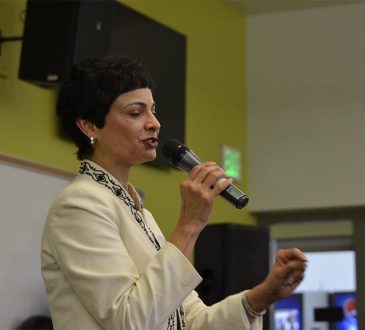5 Challenges International Students Face Abroad

The sheer excitement to travel abroad is inexplicable. You visit places and come back home after some time. However, things may become a little challenging for those who pursue education abroad. Visiting for tourism and visiting for education are two different experiences, though there may be overlap between them. When you move to a country for pursuing higher education, you are faced with a number of issues. After all, you have placed yourself in a whole new universe where people talk and work differently, and what you know already may not be sufficient to settle down easily.
International students go through a lot to adjust. They must adopt the new ways of life—and mind you, that is anything but simple. Those who you who have had the experience would back me up on this that challenges are manifold. In case you haven’t been abroad for education or are going to be in the future, then you should acquaint yourself with a few of the challenges you will share with most international students. So, let us take a look.
- First of all, linguistic barriers
English may be touted as a universal language, but it is not as universal as people make it out to be. There are countries whose citizens do not use English such as Japan or Venezuela. They may have universities that offer courses in English, but the numbers are not as many as you’d expect.Even if you go to an English-speaking country, there will be many dialects or local variations that could be hard to adapt to. Even the accent changes! Moreover, locals prefer that you transact in the local language. Hence, linguistic barriers will be many.
- Cultural differences
Cultural shock is likely to impact you in the first few days. The significant cultural differences will cause you to revise whatever you have known or done until now. For example, in the United Kingdom, the V sign is offensive and indicates defiance whereas, in Japan, people often use the V sign while clicking pictures. In Brazil, you must mind what you speak about football. In the Middle East, there may be heavy restrictions on what you wear and how you wear. In Thailand, you must not speak ill about the Monarch. Hence, it is advised that you must study rigorously about cultural differences before moving out of your country. - Longing for a Home
It takes a lot of time to make a new place feel homely. Homesickness is to be a likely consequence. The at-home comfort you had been accustomed to would no longer be available; you will have to get the hang of things on your own, buy essentials on your own, make new friends, manage all aspects of your life on your own, and whatnot.Naturally, you would want to go back. Under stressful circumstances, you might even feel like giving all up and return home. But, let me tell you this that you must give time for things to settle down. Things will work out, but an impatient mind would not help.
- Mounting expenses
Even if you are on a scholarship, expenses would be a concern. Initially, your expenses will be more because you will be settling in: getting a place to stay, buying groceries, paying bills, and whatnot. Your first few months will go into understanding the kind of accounting practices you will need there.Most of the time, you will be complaining about the differences between the prices in your home country and the country of current residence. However, as you grow accustomed to the new lifestyle, you will start making better choices.
- Socializing
One of the major hurdles in settling down smoothly abroad is the difficulty in socialization. Due to the lingering cultural differences, it becomes difficult to socialize effectively. When abroad, we might feel out of place and this could really stress us out. In any society, humans are naturally inclined to assimilate unless their personality operates otherwise.We want a few people in our circle so as to function properly in society but the task becomes tedious abroad. So, how to deal with this? Well, there is no straightjacket answer to this. All I could say is that you should not withdraw yourself from conversations. Do not put much stock in other people’s opinions. Engage yourself as often as you can and you will surely find some good company.
Have you read?
Countries With The Largest Household Size.
The World’s Best Non-Native English Speaking Countries.
Best Countries For Business In Europe For Non-European Investors.
World’s Best Countries For Business Expats.
Add CEOWORLD magazine to your Google News feed.
Follow CEOWORLD magazine headlines on: Google News, LinkedIn, Twitter, and Facebook.
This report/news/ranking/statistics has been prepared only for general guidance on matters of interest and does not constitute professional advice. You should not act upon the information contained in this publication without obtaining specific professional advice. No representation or warranty (express or implied) is given as to the accuracy or completeness of the information contained in this publication, and, to the extent permitted by law, CEOWORLD magazine does not accept or assume any liability, responsibility or duty of care for any consequences of you or anyone else acting, or refraining to act, in reliance on the information contained in this publication or for any decision based on it.
Copyright 2024 The CEOWORLD magazine. All rights reserved. This material (and any extract from it) must not be copied, redistributed or placed on any website, without CEOWORLD magazine' prior written consent. For media queries, please contact: info@ceoworld.biz
SUBSCRIBE NEWSLETTER












